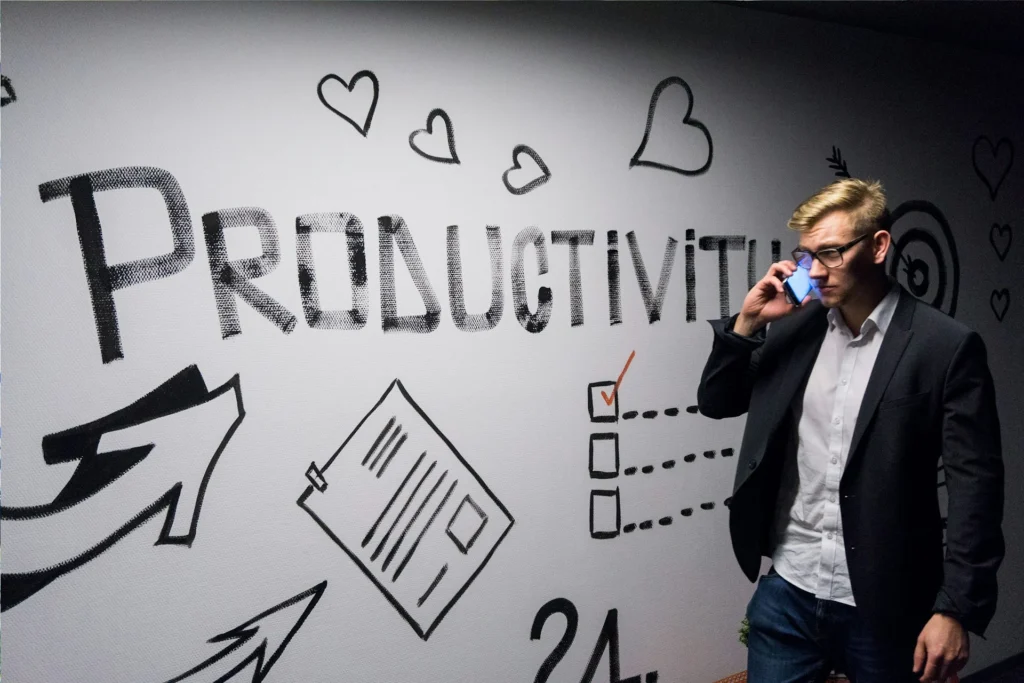Busy professionals in today’s fast-paced world often find themselves juggling multiple responsibilities, from work deadlines and meetings to personal obligations and self-care. The pressure to excel in every area of life can lead to longer working hours, increased stress, and a constant feeling of being overwhelmed. However, there is a better way to manage this balancing act. By adopting effective time-saving strategies, busy professionals can boost productivity without sacrificing their well-being. This article explores practical tips that promote both personal development and productivity while preventing burnout.
The Busy Professional’s Dilemma in Understanding the Challenge
Busy professionals often feel caught between the demands of their careers and the need to maintain a healthy work-life balance. The constant influx of emails, meetings, and deadlines can make it seem like there’s never enough time to get everything done. This can lead to stress, burnout, and a decline in overall productivity. But it doesn’t have to be this way.
Personal Development and the Impact of Burnout on Productivity
Burnout is a state of chronic physical and emotional exhaustion, often caused by prolonged stress and overwork. For busy professionals, burnout can be particularly detrimental, leading to decreased productivity, lack of motivation, and even health issues. When burnout takes hold, it becomes difficult to stay focused, make clear decisions, and achieve long-term goals.
Personal development, which involves improving one’s skills, knowledge, and self-awareness, also suffers when burnout sets in. The energy and drive needed for self-improvement are depleted, leaving little room for growth. Therefore, finding ways to manage time effectively is crucial not only for maintaining productivity but also for fostering personal development.

Time-Saving Strategies to Boost Productivity
To avoid burnout and stay productive, it’s essential to implement strategies that save time and maximize efficiency. Here are some practical tips that busy professionals can use to streamline their workday and maintain a healthy balance between professional and personal life.
1. Prioritize Tasks with the Eisenhower Matrix
The Eisenhower Matrix, also known as the Urgent-Important Matrix, is a powerful tool for prioritizing tasks. It divides tasks into four categories:
- Urgent and Important: Tasks that require immediate attention and contribute to your goals.
- Important but Not Urgent: Tasks that contribute to long-term goals but don’t need immediate action.
- Urgent but Not Important: Tasks that need to be done quickly but don’t contribute much to your goals.
- Not Urgent and Not Important: Tasks that have little value and can often be eliminated.
By categorizing tasks this way, busy professionals can focus on what truly matters and avoid wasting time on less important activities.
2. Practice the Pomodoro Technique
The Pomodoro Technique is a time management method that encourages focused work in short bursts, followed by brief breaks. The technique involves working for 25 minutes (one Pomodoro), then taking a 5-minute break. After four Pomodoros, take a longer break of 15-30 minutes. This approach helps maintain concentration, prevents mental fatigue, and enhances productivity.
3. Use Time Blocking for Effective Scheduling
Time blocking involves dividing your day into blocks of time dedicated to specific tasks or activities. For example, you might block out two hours in the morning for deep work, followed by an hour for meetings, and another block for email responses. By scheduling your day in this way, you create a structured routine that minimizes distractions and ensures that you have time for both work and personal activities.
4. Automate Routine Tasks
Many professionals spend a significant amount of time on repetitive tasks that could be automated. Tools like email filters, task automation software, and calendar scheduling apps can handle these routine activities, freeing up time for more important tasks. Automation not only saves time but also reduces the cognitive load, allowing you to focus on high-value work.
5. Delegate When Possible
One of the most effective ways to save time is by delegating tasks to others. Delegation allows you to offload tasks that others can handle, freeing up your time for more critical responsibilities. Whether it’s assigning tasks to team members or outsourcing certain activities, delegation is key to managing workload and avoiding burnout.
6. Limit Multitasking
Multitasking may seem like a good way to get more done, but it often leads to decreased productivity and increased stress. Instead of multitasking, focus on completing one task at a time. This approach, known as single-tasking, allows you to work more efficiently, produce higher-quality work, and reduce the mental strain associated with juggling multiple tasks simultaneously.
7. Set Boundaries and Learn to Say No
Busy professionals often feel pressured to take on more work than they can handle, leading to burnout. Setting clear boundaries around your time and learning to say no to non-essential tasks are crucial for maintaining a manageable workload. By protecting your time, you can focus on what’s most important and avoid spreading yourself too thin.
8. Practice Mindfulness to Stay Grounded
Mindfulness is the practice of staying present and fully engaged in the moment. For busy professionals, mindfulness can be a powerful tool for managing stress and improving focus. Taking a few minutes each day to practice mindfulness—whether through meditation, deep breathing, or simply taking a mindful walk—can help clear your mind, reduce anxiety, and enhance your ability to concentrate.

Enhancing Personal Development Through Time Management
Effective time management isn’t just about getting more work done—it’s also about creating space for personal development. Here’s how busy professionals can use time-saving strategies to foster growth and self-improvement.
1. Allocate Time for Learning and Skill Development
Personal development requires continuous learning and skill-building. By using time-saving strategies to streamline work, busy professionals can free up time for educational activities, such as taking courses, reading books, or attending workshops. Allocating specific time blocks for learning ensures that personal growth remains a priority, even amid a busy schedule.
2. Reflect and Set Personal Goals
Taking time to reflect on your progress and set personal goals is essential for growth. Use tools like journaling or regular self-assessments to evaluate your achievements and identify areas for improvement. Setting specific, measurable, and achievable goals can guide your personal development journey and keep you motivated.
3. Practice Self-Care as Part of Your Routine
Self-care is a critical component of personal development, as it supports both physical and mental well-being. Busy professionals often neglect self-care due to time constraints, but by implementing time-saving strategies, you can create space in your schedule for activities that recharge and rejuvenate you. Whether it’s exercising, spending time with loved ones, or engaging in hobbies, self-care helps maintain balance and prevents burnout.
4. Build a Supportive Network
Personal development is often enhanced by surrounding yourself with supportive and like-minded individuals. Networking, mentoring, and participating in professional communities can provide valuable insights, encouragement, and opportunities for growth. By managing your time effectively, you can make room for these important connections.
5. Embrace a Growth Mindset
A growth mindset, the belief that abilities can be developed through dedication and hard work, is vital for personal development. Busy professionals can cultivate a growth mindset by viewing challenges as opportunities to learn and improve. Time management strategies that reduce stress and create a more balanced work-life dynamic support the development of a growth mindset, allowing you to approach personal and professional challenges with resilience and optimism.
Balancing Productivity and Well-Being
While boosting productivity is important, it should never come at the expense of well-being. Striking a balance between the two is crucial for long-term success and happiness. Here are some strategies to maintain that balance:
1. Regularly Reevaluate Your Priorities
Your priorities may change over time, and it’s important to reassess them regularly. Make sure that your time and energy are aligned with your current goals, both personal and professional. By staying flexible and adjusting your focus as needed, you can ensure that your efforts are always directed toward what matters most.
2. Take Breaks to Recharge
Productivity doesn’t mean working nonstop. Taking regular breaks throughout the day is essential for maintaining energy and focus. Whether it’s a short walk, a quick stretch, or simply stepping away from your desk, breaks help prevent burnout and keep you performing at your best.
3. Disconnect After Work Hours
In our always-connected world, it’s easy for work to spill over into personal time. Setting boundaries around work hours and disconnecting from devices when you’re off the clock is important for maintaining a healthy work-life balance. Use this time to unwind, engage in non-work-related activities, and recharge for the next day.
4. Celebrate Your Achievements
Recognizing and celebrating your accomplishments, no matter how small, can boost morale and motivation. Whether it’s completing a big project, hitting a personal goal, or simply making it through a challenging week, take time to acknowledge your achievements. This practice reinforces a positive mindset and encourages continued growth.
5. Seek Help When Needed
If you’re feeling overwhelmed or burned out, don’t hesitate to seek help. Whether it’s talking to a manager about your workload, consulting a coach or mentor, or seeking support from friends and family, reaching out can provide new perspectives and solutions. Remember, asking for help is a sign of strength, not weakness.
Busy professionals face unique challenges, but with the right time-saving strategies, it’s possible to boost productivity, foster personal development, and avoid burnout. By prioritizing tasks, practicing mindfulness, setting boundaries, and making time for self-care and learning, you can create a balanced and fulfilling professional life.
Remember, productivity isn’t about working harder—it’s about working smarter. And personal development isn’t a one-time effort—it’s a continuous journey. By integrating these strategies into your daily routine, you can thrive in your career while also growing as an individual. So take the first step today, and start managing your time in a way that supports both your professional success and personal well-being.
